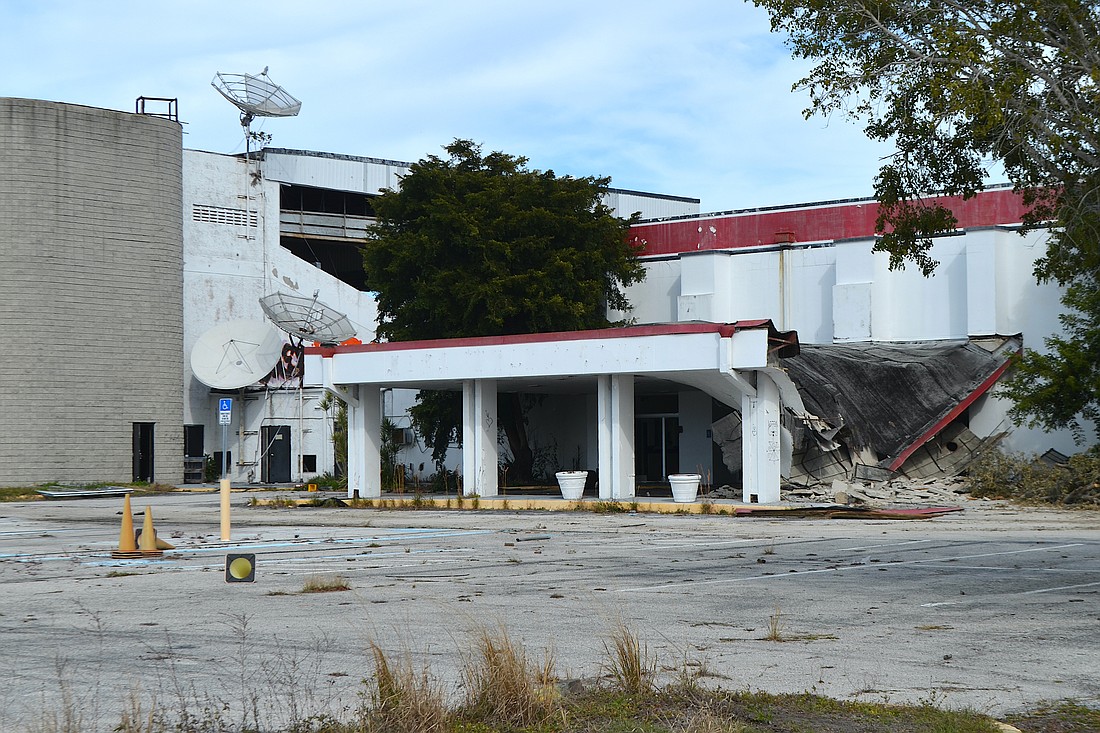- December 13, 2025
-
-
Loading

Loading

Jack Collins Jr. sat in the cab of an excavator, invited by the new owner of the Sarasota Kennel Club to take the first whack at demolishing the iconic structure at the edge of the Sarasota city limits on University Parkway,
He couldn’t do it.
The legacy of three generations of building up and operating the Collins family business was too much for him to tear down — albeit only a symbolic piece. So he sat next to new owner Baird Inc. President and CEO Eric Baird and watched as the mechanical arm and bucket knocked down a corner of an auxiliary building adjacent to the grandstand.